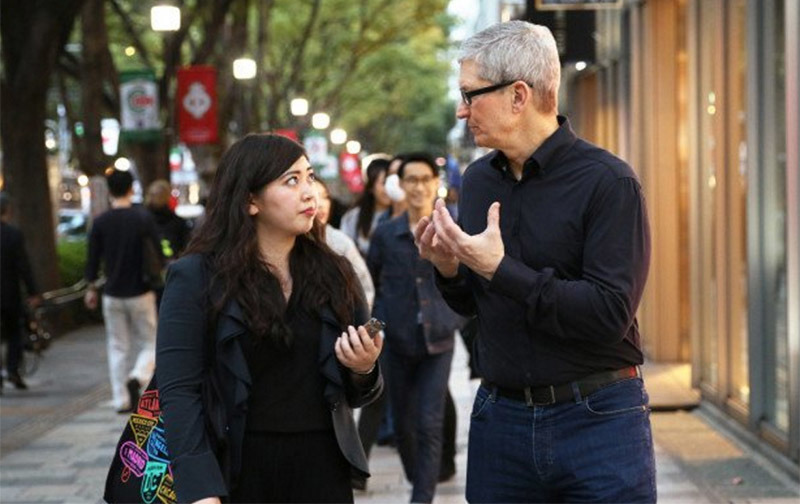In an interview published Thursday, Apple CEO Tim Cook reaffirmed his company's stance on augmented reality, saying the technology's ability to amplify human experiences makes it more likely to succeed as compared to virtual reality.
Speaking to BuzzFeed News, Cook once again reiterated the company's bullish position on AR. While the publication was unable to suss out details on future plans, it did nab a soundbite that sheds a bit of light onto the company's thinking.
"There's no substitute for human contact," Cook said. "And so you want the technology to encourage that."
Since first broaching the subject during a quarterly investors conference call in July, Cook has repeated the same refrain when asked about a potential Apple branded AR/VR offering.
"We have been and continue to invest a lot in this," Cook said in July. "We are high on AR for the long run, we think there's great things for customers and a great commercial opportunity. So we're investing."
The Apple chief expanded on the topic in today's interview using expectedly vague terms.
"VR, I think, has some interesting applications, but I don't think it's a broad-based technology like AR," Cook told BuzzFeed News. "Augmented reality will take some time to get right, but I do think that it's profound. We might ... have a more productive conversation, if both of us have an AR experience standing here, right? And so I think that things like these are better when they're incorporated without becoming a barrier to our talking. [...] You want the technology to amplify it, not to be a barrier."
The comments are basically an abridged version of those offered to major media outlets in recent weeks. Cook said the same thing, using interchangeable verbiage, in August, September and, most recently, two weeks ago at the Utah Tech Tour hosted by Sen. Orrin Hatch.
Distilled down to its most basic elements, augmented reality can be thought of as a layer of digital information overlaid onto the physical world. Advanced versions of the immersive technology use specialized transparent displays, though developers working within contemporary hardware constraints have created effective analogs using smartphone cameras and displays. Niantic's hit Pokémon Go app for iOS is one such example.
Though Apple has yet to outline an official AR strategy, the company is making strategic AR segment purchases like last year's acquisition of motion capture specialist Faceshift and German AR firm Metaio. The company is also developing supporting tech in-house, as evidence by a growing portfolio of AR/VR patents like transparent displays, iPhone-powered virtual reality systems, advanced computer vision tech and more.
 Mikey Campbell
Mikey Campbell







-m.jpg)






 Thomas Sibilly
Thomas Sibilly
 Wesley Hilliard
Wesley Hilliard
 Marko Zivkovic
Marko Zivkovic

 Malcolm Owen
Malcolm Owen

 Amber Neely
Amber Neely










56 Comments
This reminds me of Balmer talking about the iPhone for some reason.
I don't see the connection as they have completely different applications.
Apple would be wise to facilitate a platform for both.
Yes.
When I look at a scene I would benefit from seeing the names of people (those I know) in view and the names of streets in various directions and compass headings. These are the simplest augmented views and complex technology but they certainly would simplify my interaction with the world.
Sort of a second layer of information on the screen that's only appear when activated via 3d touch? Okay, I like it. Basic AR (AR applications have been long developed since year 2000) requires visual recog but advanced AR (and I hope Apple is pursuing this) is capable of 2 things: analyzing and suggestion. On the security side, I don't have problem Apple would tracking anything with their differential privacy data. Speed and accuracy improvements (in visual recog) will set Apple apart from competitors.
AR that's truly useable is at least 5 years out. We'll then travel through a vast, evolutionary manifestation of AR, whereby all possible implementations must be tried and complete for value, with standard collection of applications finally rising to the top.
Pure VR will be limited, aside from applications designed to appease, entertain the nervous system. Living on Mars, for example, completely isolated and lonesome and boring, unless you immerse yourself in VR.